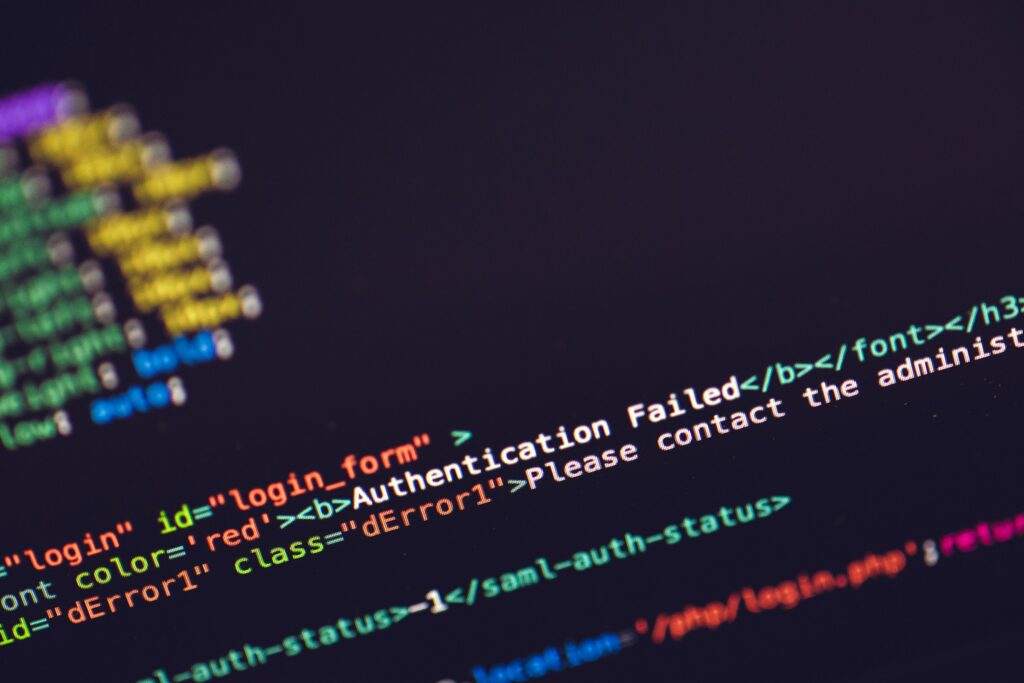A serious data leak at an online credit reporting agency has Cybersecurity in Germany was shaken. A hacker uncovered the vulnerability and published sensitive data. Creditworthiness data. This incident throws a spotlight on the Data protection breach and the security of consumer data.
The revelation of the data leak at the online credit agency could have far-reaching consequences. Not only the credit agency itself is affected, but also numerous consumers whose personal financial data is now publicly accessible. This situation is reminiscent of the recent incident at Bluesky, where a rapid increase in users led to security problems.
Experts warn of the risks of such data leaks. They emphasize the need for robust security measures, similar to those being discussed for the EU's NIS2 directive. The incident underlines the importance of IT security concepts and compliance requirements in the digital world.
Key findings
- Massive Data protection breach with an online credit agency
- Hacker publishes sensitive Creditworthiness data
- Far-reaching consequences for consumers and companies
- Cybersecurity moves into focus
- Parallels to other current security incidents
What is an online credit agency?
Online credit agencies play an important role in the financial world. They collect and process Creditworthiness data of individuals and companies. This data helps with credit decisions and the conclusion of contracts.
Definition and mode of operation
An online credit agency is a company that collects information about creditworthiness. It uses various Databases. The collected data is analyzed and processed into a credit score. This score provides information about the solvency of a person or company.
Important players in the market
There are several major online credit agencies in Germany. The best known is the Schufa. It has extensive Databases with creditworthiness information. In addition to the Schufa there are other providers such as Creditreform and Bürgel. These companies work with different methods and data sources.
| Credit agency | Main focus | Data sources |
|---|---|---|
| Schufa | Private individuals and companies | Banks, telecommunications providers, retail |
| Creditreform | The company | Commercial register, annual reports, payment experience |
| Bürgel | Private individuals and companies | Debt collection agencies, public directories |
Online credit agencies have a major influence on economic decisions. Their data can be decisive for granting loans or concluding contracts. It is therefore particularly important to protect this sensitive information.
The importance of credit rating data
Creditworthiness data plays a decisive role in the world of finance. It has a significant influence on whether consumers receive loans and on what terms. Interestingly, credit checks are carried out around five to ten times a year for every consumer.
Influence on loans and financing
Credit agencies use various data for credit checks. This includes name, date of birth, address and payment history. The exact calculation formulas for credit scores are considered a trade secret. In addition to credit agencies, banks also use other data such as salary statements for risk assessment.
Protective measures for consumers
The Data protection law gives consumers important rights. They can request a free self-disclosure once a year. This is an important step towards the prevention of Identity theft. In addition, credit checks may only be based on scientifically recognized procedures and must comply with data protection laws.
If incorrect data is suspected, consumers can request a correction. This is particularly important as negative features such as late payments can have a major impact on the credit score. To protect their financial health, consumers should regularly check their data and act immediately in the event of discrepancies.
The incident: What happened?
A serious data leak at an online credit agency has shaken the world of data protection. Sensitive information from around 700,000 consumers was made available unprotected on the internet. The Data leak from online credit agency extended over a period of at least three years.
Details of the data leak
The Data protection breach affected well-known online marketplaces such as OTTO and Media Markt. More than one million sensitive user data records were accessible unsecured on the Internet. This opened the door for Phishing attacks and Identity theft.
Affected companies and data types
In addition to the marketplaces mentioned, other companies were also affected by the data leak. The exposed data included:
- Personal information (names, addresses)
- Financial details (credit card information)
- Contact details (e-mail addresses, telephone numbers)
- User accounts and identification data
The incident is reminiscent of similar data breaches at large companies such as Facebook, LinkedIn and Twitter. In these cases, millions of users' data were also affected. The legal consequences of such incidents can be considerable. In the past, German courts have awarded damages of up to 3,000 euros per case.
The hacker and her motivation
The Cybersecurity is in the spotlight after a hacker revealed sensitive credit rating data. The Data misuse raises questions about the identity and motives of the perpetrator.
Background of the hacker
The hacker remains anonymous, which makes the investigation more difficult. Her digital identity is made up of various elements:
- Login data and passwords
- Online activities and digital footprints
- Possible biometric data
These traces could provide clues to their origin or technical capabilities. The diversity of the captured data indicates extensive knowledge.
Possible reasons for the data leak
The hacker's motivation remains unclear. Possible reasons range from financial interests to uncovering security vulnerabilities:
- Selling sensitive data on the black market
- Political goals or hacktivism
- Demonstration of weak points in data security
The scope of the data leak - 907 gigabytes according to the hacker, 400 gigabytes published - shows the extent of the incident. Data from the Federal Intelligence Service and other authorities is also affected.
Investigators face the challenge of deciphering the true intentions and preventing future attacks. The case underlines the need for improved cyber security to protect sensitive information.
Effects on consumers
The data leak at online credit agencies has far-reaching consequences for the consumers affected. The publication of sensitive creditworthiness data exposes many people to considerable risks.
Risks for the persons concerned
The dangers are manifold and can have serious consequences:
- Unauthorized subscriptions to streaming services or dating portals
- Unauthorized purchases from online retailers
- Misuse of customer data on marketplaces
- Conclusion of mobile phone contracts without the knowledge of the person concerned
- Fraudulent loan applications in the name of consumers
A specific case shows the consequences: a consumer received invoices for orders that he had never placed. Criminals had stolen his personal data abused.
Protection against identity theft
To protect yourself from Identity theft consumers should take the following measures:
- Regular review of credit reports
- Immediate reporting of suspicious activities
- Be careful when disclosing personal data
- Use of secure Passwords and two-factor authentication
- Attention to phishing e-mails
The Privacy is becoming increasingly important in view of these risks. Consumers should be vigilant and protect their personal information to prevent identity theft.
| Risk | Protective measure |
|---|---|
| Unauthorized subscriptions | Regular account check |
| Unauthorized purchases | Use strong passwords |
| Data misuse in marketplaces | Activate two-factor authentication |
| Fraudulent credit applications | Monitor credit reports |
Reactions of the online credit agencies
Following the serious data breach at a well-known online credit agency, companies in the sector are alarmed. The focus is shifting to cyber security as companies review their systems.
Official statements
The credit agency concerned reacted promptly to the incident. A press release states:
"We take the protection of customer data very seriously and deeply regret the incident. Our experts are working around the clock to close the security gap and inform affected customers."
Other companies in the industry are distancing themselves from the incident and emphasizing their own security standards. An industry association is calling for stricter regulations for the handling of sensitive data.
Data security measures
The credit agencies respond to the data breach with specific steps:
- Implementation of comprehensive safety audits
- Investments in modern encryption technologies
- Training for employees on the topic of cyber security
- Establishment of an emergency plan for future incidents

An overview of the planned measures shows the industry's priorities:
| Measure | Priority | Implementation period |
|---|---|---|
| Improvement of firewall systems | High | Immediately |
| Introduction of biometric authentication | Medium | 3-6 months |
| Regular penetration tests | High | Quarterly |
| Development of a Privacy-seal of approval | Low | 12-18 months |
The industry hopes that these measures will restore consumer confidence and prevent future data breaches.
Germany's data protection legislation
Germany has strict data protection laws that regulate the handling of personal data. The Data protection law in Germany is based on the Privacy-General Data Protection Regulation (GDPR) and the Federal Data Protection Act (BDSG).
Overview of applicable laws
The GDPR and the BDSG provide clear guidelines for dealing with personal data. According to §§ 19 and 34 BDSG, public and non-public bodies must provide information about stored data. Data subjects have the right to request information from credit agencies once a year free of charge.
| Law | Main aspects |
|---|---|
| GDPR | Response period 1 month, negative information if data is missing |
| BDSG | Free information, data categories, storage duration |
Relevance to the incident
With a Data breach like the current one incident, these laws apply. Art. 33 GDPR requires data breaches to be reported to the supervisory authority. In the event of disclosure of data to unauthorized persons, Art. 34 GDPR an obligation to notify the data subjects.
Legislation requires a careful risk assessment of data breaches, especially when sensitive information such as medical data or home addresses are involved. Companies must keep access logs for at least two weeks in order to be able to trace possible breaches.
The German Data protection law provides a strong framework for Protection of personal data and regulation of data breaches.
Corporate responsibility and ethics
In the world of Data protection and cyber security companies are facing major challenges. The latest incident at an online credit agency shows how important it is to act ethically when handling sensitive data.
Expected standards in the industry
Experts such as Marisa Tschopp emphasize the need for trust and transparency in the development of AI systems. Discussions and articles make it clear that companies need to set higher standards in data protection.
- Implementation of robust security measures
- Regular review of the data protection guidelines
- Training employees in cyber security
Case studies on corporate responsibility
Marc Ruef, a Expert for cyber securityemphasizes the risks of networked devices. His analyses show how important it is to learn from past incidents. Companies must act proactively to prevent data leaks.
Resilience and business continuity planning are crucial for protecting sensitive data.
The industry is under pressure to develop and implement ethical guidelines. This is the only way to strengthen consumer confidence in data protection. The future of cyber security depends on the responsibility of each individual company.
Protective measures for consumers
In times of increasing Cyber attacks is data protection more important than ever. The Federal Criminal Police Office recorded over 136,000 cyberattacks in 2022. Consumers should take action to protect themselves against identity theft.
Recommendations for data security
Strong passwords and regular credit report checks are essential. Enabling two-factor authentication for sensitive online accounts significantly increases security. In case of suspicion of Data misuse quick action is required.
Use of tools and services
Various tools and services can improve data protection:
- Password manager for managing complex passwords
- VPN services for secure Internet surfing
- Identity protection services for monitoring personal data

These measures help to minimize the risk of identity theft. In view of the increasing number of data leaks - over 130,000 cases were registered for the first time in 2020 alone - vigilance is required.
| Protective measure | Benefit |
|---|---|
| Strong passwords | Make unauthorized access more difficult |
| Two-factor authentication | Additional security level |
| Regular checks | Early detection of irregularities |
By consistently applying these protective measures, consumers can protect their protect personal data better and reduce the risk of identity theft. significantly.
Prevention of future data leaks
Cybersecurity and data protection are becoming increasingly important in times of increasing digitalization. Companies must increasingly arm themselves against data leaks in order to avoid financial damage and loss of trust.
Technological solutions and innovations
Modern security technologies form the backbone of a robust cyber security strategy. Encryption protects sensitive data from unauthorized access. Artificial intelligence detects threats at an early stage and enables rapid responses to potential attacks.
Firewalls and intrusion detection systems (IDS) are important components in the protection concept. They monitor network traffic and block suspicious activities. Regular security audits uncover vulnerabilities and help to rectify them.
Best practices for companies
In addition to technical solutions organizational measures plays a decisive role. Training courses sensitize employees to data protection issues and cyber risks. Comprehensive data protection management ensures that all processes comply with legal requirements.
- Carry out regular risk assessments
- Implement patch management consistently
- Develop and test incident response plans
- Create backups and store them securely
The Federal Office for Information Security (BSI) offers valuable support. It provides information on current threats and gives recommendations for a secure IT infrastructure. Companies should use these resources to continuously improve their cyber security.
What to do in the event of suspected data misuse?
Data misuse and identity theft are serious threats in the digital world. If you suspect one, you should act quickly to protect your personal data.
Steps to back up your own data
The following measures are important:
- Change passwords immediately
- Inform the bank about possible fraud
- Set up a fraud alert with credit agencies
- File a complaint with the police
- Have profiles in social networks blocked
- Check devices for malware
Fraudsters often only need a name, date of birth and address for identity theft. They can use it to buy goods or even commit crimes.
Support from authorities and organizations
In the event of data misuse, various bodies are available to assist you:
| Organization | Support |
|---|---|
| Consumer protection organizations | Free initial consultation (15 minutes) |
| Federal Office for Information Security (BSI) | Technical assistance and information |
| Data protection authorities | Notification of data breaches |
Please note: Companies must report data breaches within 72 hours. Failure to do so can result in high fines. Use two-factor authentication and be careful with personal information in social mediato prevent identity theft.
Conclusion: Lessons learned from the incident
The data leak incident at the online credit agency reveals the growing importance of Data protection and cyber security in our digital world. The revelation of sensitive credit rating data shows how vulnerable even supposedly secure systems can be.
Importance of data security
The statistics speak for themselves: there were 3,950 confirmed data breaches in 2021. The average cost per incident amounted to 4.24 million US dollars. What is particularly alarming is that 39% of the costs were incurred more than a year after the incident. These figures underline the enormous importance of robust data security measures.
Outlook for future developments
Clear trends are emerging for the future. Companies are increasingly investing in innovative security technologies. The use of a mature Zero Trust model can reduce incident costs by an average of 1.76 million US dollars. At the same time, the importance of consumer awareness is increasing. The GDPR, which has been in force since May 2018, plays a key role here. It sets new standards for dealing with personal data and promotes a growing awareness of data protection in the population.
